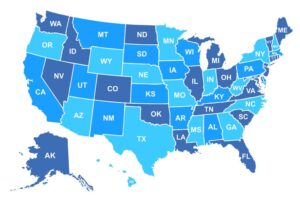What does the current COVID-19 vaccine protect against?
What does the current COVID-19 vaccine protect against?
In addition to data from clinical trials, evidence from real-world vaccine effectiveness studies show that COVID-19 vaccines help protect against COVID-19 infections, with or without symptoms (asymptomatic infections).
Are long term side effects possible with the COVID-19 vaccine?
Benefits of Vaccination Outweigh the Risks Serious side effects that could cause a long-term health problem are extremely unusual following any vaccination, including COVID-19 vaccination.
What are the chances of getting serious side effects from the COVID-19 vaccine?
Allergic reaction or anaphylaxis was reported in 0.3% of participants after partial vaccination and 0.2% of participants after full vaccination. Meaning These findings suggest that some individuals experience more adverse effects after COVID-19 vaccination, but serious adverse effects are rare. Dec 22, 2021
Are there any safety concerns concerning mRNA technology of the Pfizer-BioNTech COVID-19 Vaccine?
FDA does not have specific safety concerns with a vaccine that utilizes this technology. Feb 16, 2022
Is it normal for the second Pfizer COVID-19 vaccine to cause arm pain?
As with all two-dose vaccines, those getting either Pfizer’s or Moderna’s COVID-19 vaccination are more likely to experience arm pain after the second dose. This side effect is also more common if you are under 65 years old. Apr 29, 2021
What are the common side effects of the COVID-19 vaccine?
The most commonly reported side effects were pain at the injection site, tiredness, headache, muscle pain, chills, joint pain, and fever. Feb 16, 2022
Can taking Tylenol (acetaminophen) before the COVID-19 vaccine reduce its effectiveness?
Because taking over-the-counter painkillers before getting vaccinated may reduce the responsiveness of your immune system and therefore weaken the effectiveness of the vaccine, the CDC does not recommend taking Tylenol or ibuprofen before getting the COVID-19 vaccine. Dec 17, 2021
Why are Moderna and Pfizer COVID-19 vaccine side effects worse after the second shot?
Side effects from both the Moderna and Pfizer COVID-19 vaccines are more common after the second dose. This is because your immune system recognizes the virus spike protein from the first dose of the vaccine and mounts a stronger response. Oct 28, 2021
Can COVID-19 symptoms get worse as it goes along?
COVID-19 can cause symptoms that are mild at first, but then become more intense over five to seven days, with worsening cough and shortness of breath.
Does having fever, body pain, and swollen lymph nodes after the COVID-19 vaccine mean I am sick?
These symptoms do not mean you are sick. They signal that your immune system is responding to the shot and building up protection against the coronavirus. Nov 9, 2021
Who should take COVID-19 booster shot?
Who should get a booster: Adults 18 years and older.
What is a vaccine booster?
A booster shot is an additional dose of a vaccine needed to “boost” your immunity. This will give you better protection from disease. Many routine vaccines require more than one shot to achieve immunity. For example, the MMR (measles, mumps, rubella) vaccine requires two shots. Jan 25, 2022
When to get a booster after a J&J COVID-19 vaccine?
People who received Johnson & Johnson’s Janssen COVID-19 vaccine should get a booster shot at least 2 months after getting their first shot. At this time, CDC recommends getting only one COVID-19 booster shot. CDC continues to review evidence and will update guidance as more information is available.
Why should I get a booster if I might still get COVID-19?
Vaccines are working extremely well to reduce serious infections, but boosters are critical for the best protection against hospitalization, death and against multiple variants. Even after you have had a COVID infection, vaccination and boosters will provide increased protection.” Jan 20, 2022
Is there a difference between the Moderna COVID-19 booster and Moderna third shot?
In the case of Moderna, the booster dose is only half of the original dose. Unlike boosters, third/additional doses of COVID-19 vaccines are for people who received the complete starter series of vaccines but then their immune systems didn’t have a good enough response. Dec 22, 2021


